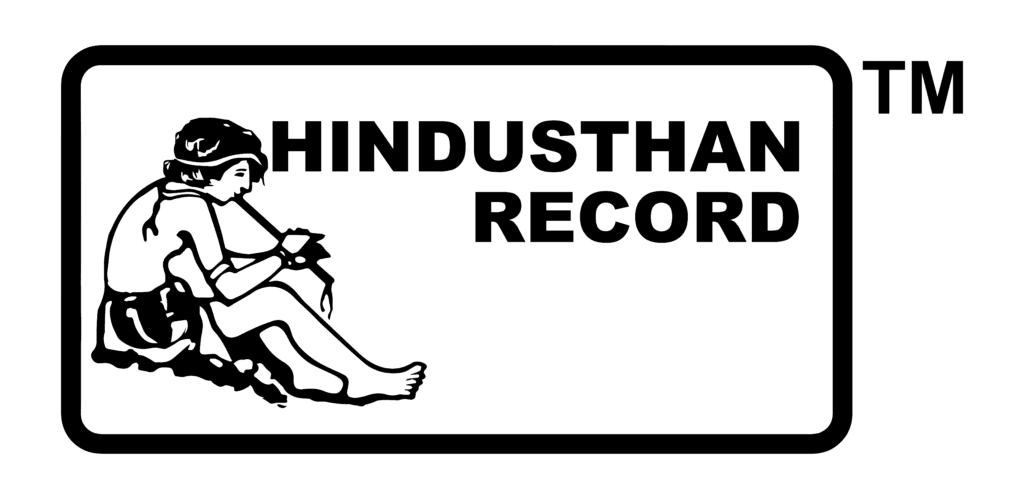27 th June 1939; the day that marked the future of Indian modern music. Born was a genius on this day, who would steer Bollywood music through decades even after his demise. A meteor that struck the musical atmosphere creating a unique resonance.
Early Life
Being the son of an illustrious father like Sachin Dev Burman, it was indeed a challenge for Rahul to create an impression in the Indian film industry. But he had started to work with his father as an assistant music director way back in the 50s. Unlike some who inherit a legacy, Rahul wasn’t content with simply following in his father’s footsteps. From a young age, he was surrounded by music. R. D. Burman, affectionately known as Pancham, was a revolutionary force in Indian cinema. He adapted and introduced exotic elements and music genres new to Indian film music by applying Western orchestrations His musical compositions, spanning over three decades, continue to enthral audiences and inspire generations of musicians.
Studying the life and legacy of this enigmatic music director, exploring his innovative spirit, collaborative genius, and the enduring impact he left on Hindi film music he could simply be called only “The Boss of Bollywood Music”. Born to the legendary composer S. D. Burman & Mira Dev Burman, Rahul Dev Burman was practically cradled in music. Despite his lineage, Rahul carved his path, defying expectations and establishing a distinct musical identity. His early exposure to a diverse range of musical influences – from
Hindustani classical to Western jazz – played a crucial role in shaping his unique style. Young Burman was known for his rebellious spirit and unconventional approach. He readily embraced new sounds and readily dismissed the rigid musical conventions of the time. This willingness to experiment would become a defining characteristic of his career. As we know, from the early days, Rahul Dev Burman was engaged in his father’s music-making. He initially studied in Calcutta. His father helped him to make his career as a Hindi film music composer. When he asked his son what Rahul wanted to be in the future, Rahul surprised his father saying “I want to be a better music composer than you” in a competitive way.
Entry into the musical world
Sachin Dev Burman planned in which areas his son Rahul should be trained to
become important to the film music industry as a future music composer. First, Sachin Dev Burman sent Rahul Dev Burman to Brajen Biswas, a skilful tabla player, to learn the basics of rhythm and meter. After that, Rahul was sent to Ali Akbar Khan and later Ashish Khan to learn Sarod. Rahul Dev Burman also mastered mouth harmonica at an early age. It is said that in the early 50s, his father Sachin Dev Burman had explained to him the necessity of learning different kinds of instruments before dealing with music compositions. Sachin Dev Burman had told him “Before you compose you must know the range of the instruments at your command to get the best out of them”.
Those were the times in Bollywood when music composers in the industry relied mostly on
traditional folk and classical music, Rahul Dev Burman was different; he started to experiment with new sounds that were contemporary and catchy, influenced by imported music and experimenting with new instruments. All the more he did all that in an industry that was overflowing with music directors like Sachin Dev Burman, Hemant Kumar, Shankar Jaikishan, Lakshmikant Pyarelal, Madan Mohan & many more. Asha Bhosle once said that Burman always used to think of new and innovative ideas, new voices and new styles. He could also have made classical compositions but he didn’t do that, instead he kept searching for new music. Burman has innovative methods of recording new sounds. She narrates a story when once to create a particular sound for a song to be recorded in the voice of Asha Bhosle he rushed to market and bought to glass tumblers that could create the sound he desired. That was Rahul Dev Burman !
Incidentally, Burman’s entry into the film industry in the 1960s coincided with a period of significant change in Hindi cinema. The audience craved a fresh sound, something more contemporary and relatable. Pancham Da, with his unconventional ideas, perfectly captured this zeitgeist.
His early compositions showcased his ability to blend Indian melodies with Western rhythms and instrumentation. This fusion not only sounded refreshingly new but also resonated with the younger generation. Besides, it is also true that his association with singers like Kishore Kumar and Asha Bhosle further propelled his success. His understanding of their vocal strengths and ability to tailor songs to their unique styles resulted in countless unforgettable hits.
Musical career
Burman’s genius lay in his ability to seamlessly blend genres. He incorporated folk, disco, funk, and even reggae influences into his compositions, creating a vibrant soundscape that transcended traditional boundaries. He experimented with unusual instruments, and soundscapes, and even incorporated elements of Western orchestration. This innovative spirit resulted in iconic songs like “Mehbooba Mehbooba” and “Yamma Yamma”.
Eventually, his partnership with the lyricist Gulzar proved to be particularly fruitful. Together, they created some of the most poignant and poetic songs in Hindi cinema history, like While Burman’s association with mainstream cinema brought him immense popularity, his brilliance extended beyond commercial success. He composed music for art-house films like “Masoom” and “Ijaazat”, showcasing his ability to adapt his style to different narratives. His music for these films displayed a depth of emotion and a nuanced understanding of human relationships.
Rahul Dev Burman, also popularly known as ‘Pancham’ has numerous stories around.
Though nobody knows for sure, how Rahul Dev Burman got the nickname Pancham, some say that his parents gave it to him because it seems in his early childhood he screamed at a higher note ‘Pa; the sound of the fifth note of Indian music ‘Pa’. Some say it was acting legend Ashok Kumar who gave him the name because ‘Pa’ was the first syllable he uttered as an infant. Whichever is correct Pancham’s life was dedicated to the entire universe of music.
It is a known fact that he was an expert in culinary skills along with music. Many in the industry knew how much he loved good food, music and sports. Whenever he got some respite from work, he would throw parties at his home for his musicians and he would cook for them; fish kalia, mutton dishes, prawns and crabs were some of his favourite dishes and he loved to cook them, just as much as he loved to eat. The conversation at parties always revolved around his two great loves; sports and music.
Death
Quite unfortunately, Burman’s life was tragically cut short in 1994. Despite a relatively short
career, he left behind a vast repertoire of music, each composition a testament to his genius.
His works, even today have not His life story, marked by both brilliance and acute finesse.



